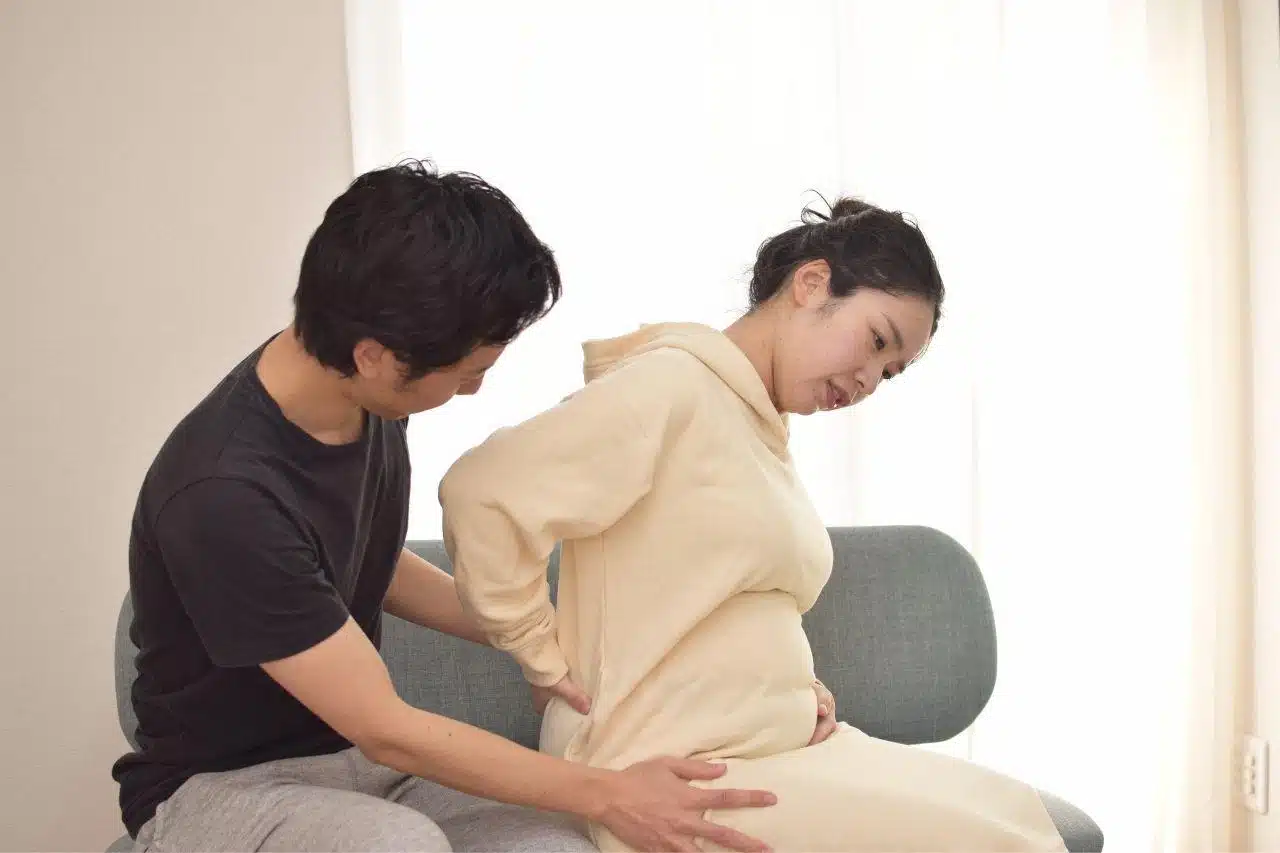While pregnant, muscles in your body naturally become softer and stretch. It can force your lower back as well as pelvis in a way that can lead you to back pain.
That is why it is important that you, as a pregnant woman, do whatever you can to minimize the pain you experience and to limit the amount of stress that your body will take on.
The way you sleep, move around, eat, dress and take care of yourself all put stress on your body which, in turn, puts unnecessary stress on your back. And, when that happens during pregnancy, your back gets even more tired than usual, and your nerves are the first to feel the effect.
Lower back pain in pregnancy
Lower back pain symptoms can occur at any stage of pregnancy. These symptoms can feel like:
- The lower back may feel dull or burning.
- A unilateral pain in one side of the lower or mid-back.
- Similar to sciatica, pain radiating into the back of the leg and thigh, sometimes into the feet.
- Foot drop is a condition that prevents you from lifting your front foot when walking.
The best way to avoid these symptoms is to treat them as soon as you begin to feel them. Treatment such as cold therapy, chiropractic care, physiotherapy, and massage can help to reduce and often eliminate your lower back pain. Before considering any of these options, make sure that you consult your physician for any recommended treatment.
Tips for relief
The following are some tips for relief that you can apply right now and practice on a daily basis to help ease your pain.
Practice good posture
Although pregnancy can be stressful for both mother and child, proper posture and good exercise can often alleviate some of the discomforts.
Good posture is an important factor in relieving back pain during pregnancy and should be practised throughout your pregnancy as well as after delivery. You can practice good posture by lying on your back and keeping your shoulders back and your head up. You should also try to keep your knees bent, your hips loose, and your chin up. Practising good posture can help you avoid having to take additional pain medications in the future.
Sleep on your side
Your back and pelvis are designed to support the weight of your baby. But when you are pregnant, your growing belly puts a lot of pressure on your lower back. This extra strain can cause back pain or even lead to a spinal injury such as a ruptured disc. In fact, back problems are the number one reason new mothers visit their doctor.
One important suggestion for pregnant women who are experiencing back pain is to sleep on their side because sleeping on your back increases the strain on the muscles and joints. Sleeping on your left or right side may also be beneficial to your health because it helps promote better blood circulation, better digestion, and an overall healthier nervous system.
Sleeping on your back with your knees bent puts a lot of pressure on your spine. When you are pregnant, your abdomen expands, which puts more pressure on your spine. By sleeping on your side with a pillow under your knees, your abdomen will be less compressed, and your spine will be less stressed.
This will put less pressure on your lower back.

Include physical activity in your daily routine
There are several ways to manage back pain in pregnancy, and good posture and exercise can go a long way toward relieving back pain and providing relief to your baby.
A regular exercise routine is a great way to keep your back strong and may help to relieve lower back pain during pregnancy. Under your doctor’s supervision, try gentle activities like walking or water exercise. Physical therapy can help you adjust and strengthen any pain or weakness you might be experiencing.
Consider complementary therapies
Some studies have found that acupuncture can help relieve back pain during pregnancy. Some women might experience relief from chiropractic treatment. If you’re considering complementary therapy, speak with your physician. Let your chiropractor know that you are pregnant before beginning any treatments.
Your doctor will be able to recommend the best therapies for you based on your medical history, your current health status, and your personal preferences. He or she will also be able to monitor your progress and offer advice on managing your back pain as your pregnancy progresses. Stay off your feet as much as possible when you are pregnant, it is important to keep moving.
However, avoid activities that require you to be on your feet for long periods of time. Try to do as much as possible while lying down or sitting in a low-backed chair. If you must be on your feet, try to alternate between walking and sitting.
Massage therapy
Massage therapy can be very helpful in reducing back pain. Speak with your therapist about the best way to position you for maximum relief. You might want to lie on your side with a pillow under your knees to allow for better circulation and reduce muscle tension.
Heat or cold therapy
Heat or cold packs can be used to bring down swelling and ease discomfort. An ice pack applied to your lower back for 20 minutes several times a day can be very helpful. Heat packs work similarly but are placed on your lower back for only 10 minutes at a time.
Relieve discomfort with heat or cold if you experience lower back pain during pregnancy, applying heat or ice to the affected area may provide temporary relief. However, do not overdo it. It’s important to keep your core temperature normal. You can use a heating pad or an electric blanket, or you can take a cool bath or shower.
Manage your stress
Stress can aggravate back pain. If you are under a lot of stress, try some relaxation techniques such as deep breathing, meditation, or progressive muscle relaxation. These can be very helpful.
Take it easy
Don’t overdo it. If you start exercising too hard or straining your back, you may end up making the problem worse. If you are experiencing lower back pain, stop exercising and take the day off. Give your body a chance to heal.






0 Comments